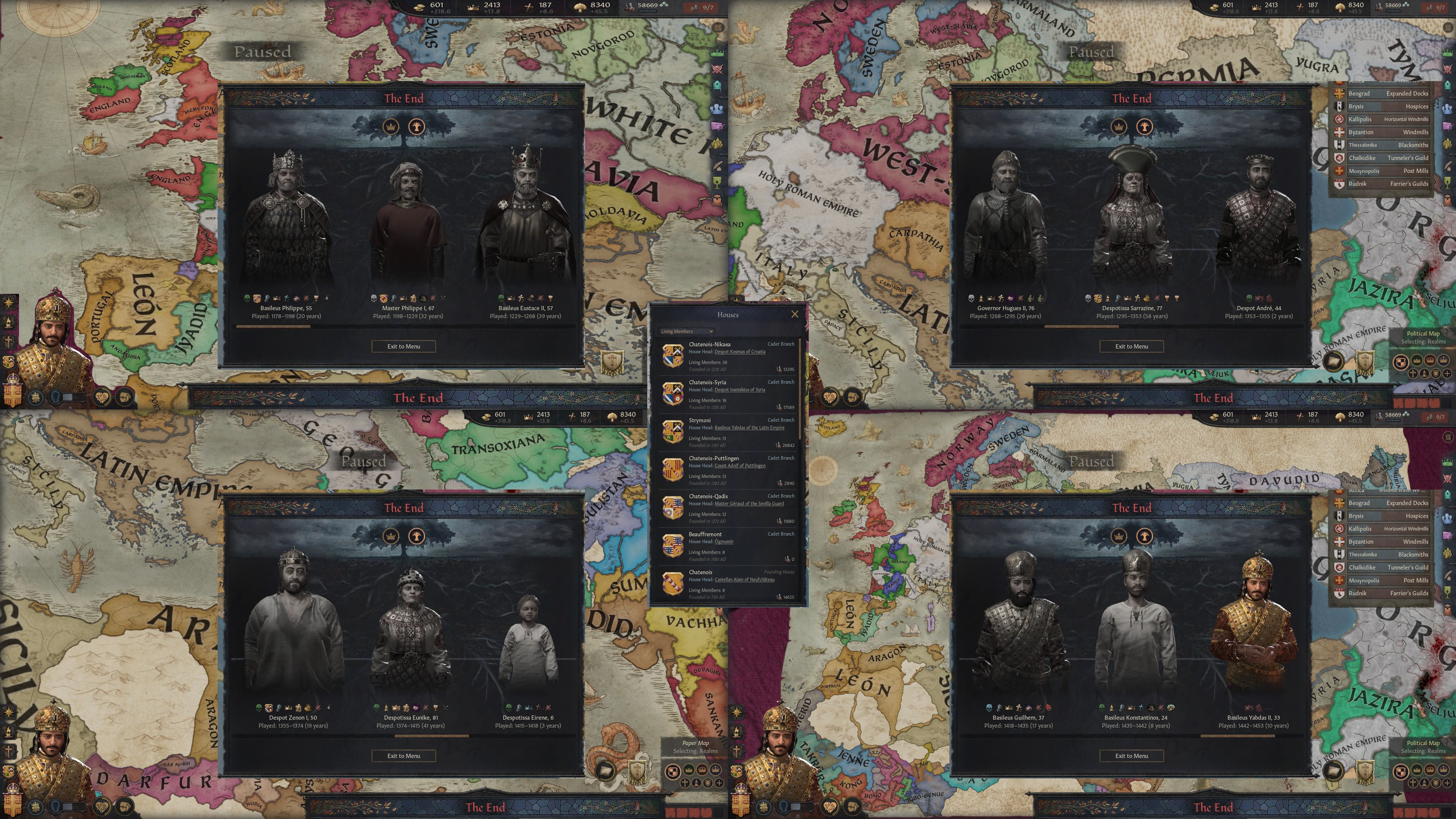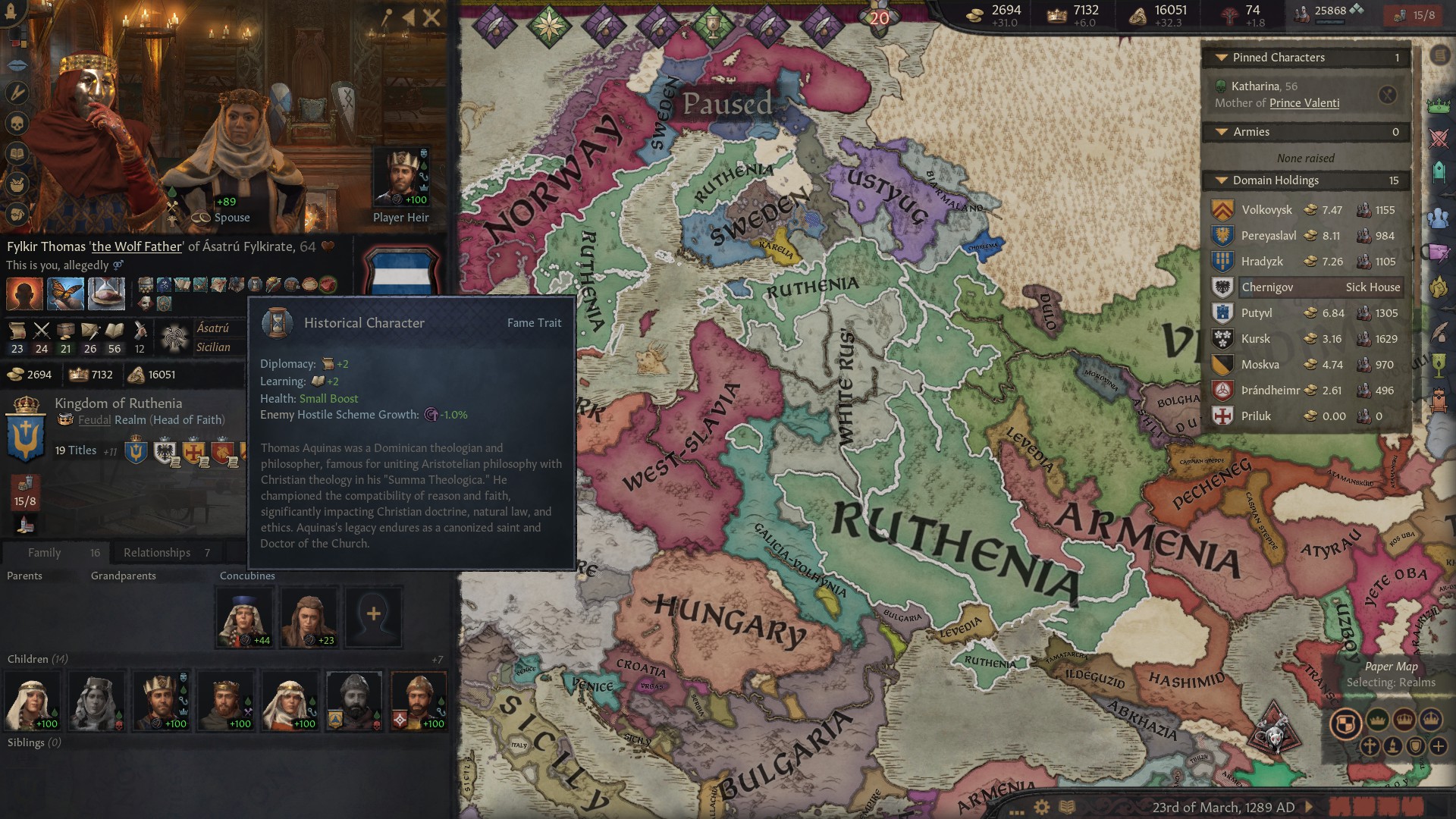I'm also greatly in favor of it, it allows for a lot of fun plays instead of just being stuck as the same character path the whole game, allowing me to have more character-inspired objectives more than the usual dynasty-planned goals. In a 1178 game, I:

- Went from being Duke of Flanders to Emperor of the Latin Empire
- Became his kinsman adventurer and converted Greece to Catholicism
- Returned as that Emperor's grandson and dealt with how the AI distributed titles
- Returned to the Duchy of Flanders and failed to usurp the French crown
- Switched to a countess in the Latin Empire and built up a despotate
- Switched to an independent kinsman in Anatolia (he had gained independence while I had returned to Flanders), fought in a crusade for Syria
- Landed brother from the crusade (primogeniture ftw) and conquered Jerusalem
- Despotissa's granddaughter in the Latin Empire, who gained a second despotate and fought to place an heir on the throne, who ended up being her third son. Designated her eldest daughter to receive her Despotate, as her first son had died and his son (her direct heir and grandson) had inherited a seperate despotate through his father and no longer had claims on the Empire.
- That Despotissa's great-granddaughter, the grand-daughter of her third son, chosen via Favorite Child. Was deposed by that Despotissa's primary grandson (who had murdered her father and grandfather) and died of disease
- (First direct succession the whole game): Uncle of the deposed Basilissa, fixed all of the AI's border gore and deposed that Despotissa's primary grandson for his perfidy in killing his father and brother
- Son of the previous Basileus, went about defeating that Despotissa's eldest daughter's heir, who tried to usurp the kingdom, so his primary despotate was revoked
- Brother of the previous Basileus, fought second war against that Despotissa's eldest daughter's heir to remove his second despotate
If I had just played with direct succession, I would've just stayed at the top as Emperor and consolidated power and money quite quickly--I probably wouldn't have played until 1453: this produced a much more fun game, jumping around from emperor to adventurer, to emperor, to two vassals of different realms, to two independent brothers, back to a vassal kingmaker, then a deposed empress, and then directly succeeding as emperor for the last three characters; I didn't have the kind of "absolute liege" power that trivializes the game until the 1400's!
Not only does the AI's difficulty in holding their realm title make it fun, but having to put the pieces back from strong vassals, especially in realms YOU had built up and are now playing against, can be an incredibly fun challenge. It also gave some fun to tracking my rivals within the realm: I wasn't just fighting a noble who had been annoying me the whole game, but a branch of my family line whom I personally given a strong demense.
As a big part, this just enhanced my relationships and interests within my realm: besides the initial conquest of the Byzantines and crusader expansions, I was mostly concerned with the internal problems of the Latin Empire, either as a vassal trying to gain pieces of power from inside/neighboring it, or from the top, trying to fight down those powerful vassals that I/the AI had created. It didn't produce a disgusting blob that becomes the bane of historicality in so many games (don't look at how France/England/Ireland sucession worked, the Capets lost the first Hundred Years War) and I was usually under some kind of pressure from somewhere else.





